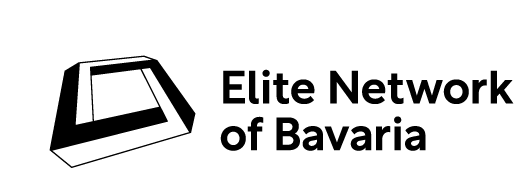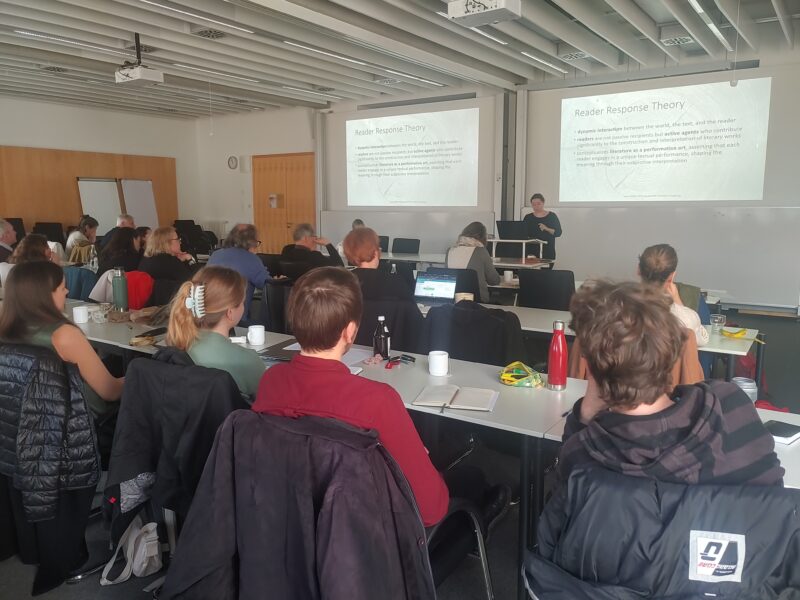
©Twelbeck IDK
Colloquium
From February 21-23, 2024, the doctoral students from the international PhD program Re-Thinking Environment presented their research projects for the third time, updating peers and advisors on the current state of their work.
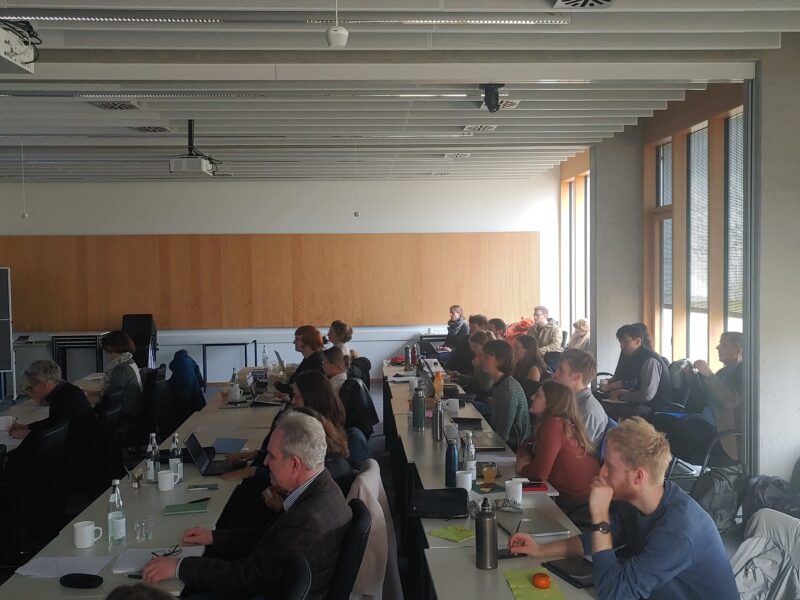
©Twelbeck IDK
Beginning at the University of Augsburg on day one, the colloquium started off with a warm welcome and introduction, setting the stage for a series of thought-provoking sessions. The format chosen was different this time: sessions were divided into interdisciplinary groups sharing a common theme, and instead of advisors it was the PhD students themselves who moderated the sessions. The new format demanded in-depth preparation on the side of workshop moderators, but that was absolutely worth it: the thematic framing of each session highlighted thematic overlaps that had been less visible previously, and there was a new sense of ownership by the PhD students that allowed for a particularly encouraging and lively discussion and helpful interactions among peers and advisors alike. Thank you Livia Cahn, Daler Kaziev Christopher Klapperich, Katie Kung, Maximilian Pieper, Christian Schnurr, Jasmijn Visser, Pia Wimmer and Floris Winckel!
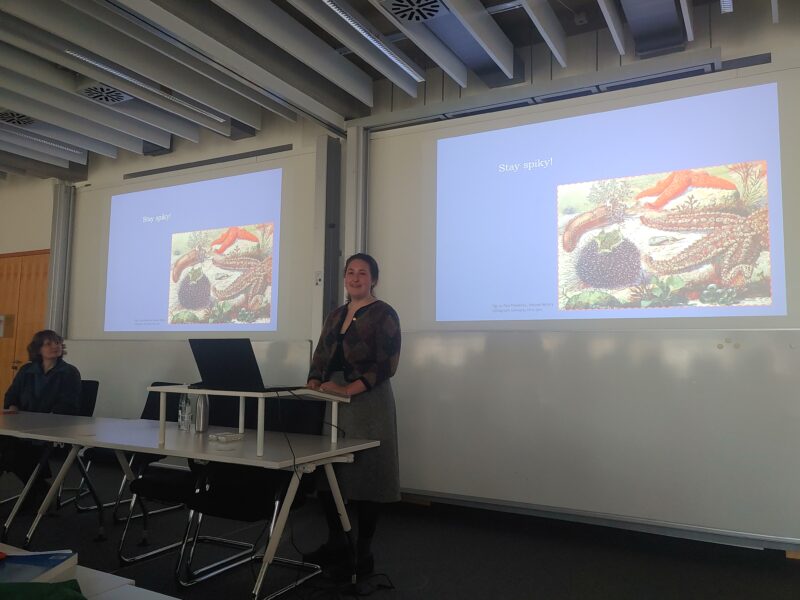
“Off the Menu” PhD Student Penelope Volinia holding her presentation
©Twelbeck IDK
Let’s take a glimpse into the first session, where Ph.D. students Pia, Lucia, and Philine brought the theme of “Narrating Transformation” to life. How do we talk about ecological transformation? What text types, what cultural approaches, are used by educators, literary authors, and cook books to draw people’s attention to environmental topics and the non-human species we live with, as humans? Pia, who works on environmental ethics and how norms and values can best be integrated in educational approaches, shared her experiences while working with teenagers in a high school context. Lucia presented her findings about the novels of Richard Powers by offering close readings of particular paragraphs from the books and explained the possible effects that the author’s aesthetic choices have on readers—at least potentially. Philine introduced her research project titled “Shucking Oysters: A Study of Bodies, Blue Theories, and Cookbooks.” Together with Penelope Volinia, Philine is a newcomer to the IDK Colloquium. They are both part of the Research Group “Off the Menu” (led by Dr. Sasha Gora) and added an exciting new flavor to the colloquium as a whole.

©Twelbeck IDK
The lively climate of the event continued throughout the second and third sessions of the day, that were focusing on “The Meaning of Ecological Invasion in an Interconnected World” and “Melting Matter, Sediments: Going Back in Time”. Penelope and Katie Kung explored topics ranging from sea urchin invasivorism and climate-conscious cuisine to invasive species in a more-than-human world, while Floris Winckel introduced the Japanese snowflake scientist Ukichiro Nakaya.
On the second day, the colloquium moved to a different building slightly removed from the campus center, which had an invigorating effect on the event. Themes like “Planting, Melting, Fencing in: Human Changes to the Earth,” “Through a Human Lens: Visuality and Ecological Transformation,” and “On Whose Terms? People, Politics, Protest” were covered and led to an exciting exchange of ideas and, sometimes, to an evolution of past research findings.
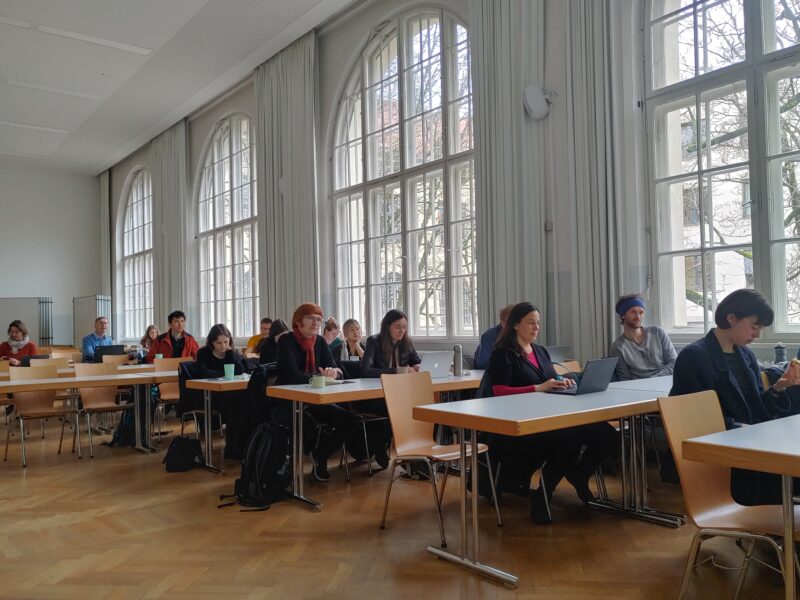
©Twelbeck IDK
The final day, hosted in the main building of LMU Munich, concluded successfully with several groups of presentations. Among them were “Transforming Thoughts, Transforming Lives: Practices and Theories of Environmental Transformation” and “How we Talk about Change: Transformation as Communication”. Overall, the third colloquium of the Um(Welt)Denken program provided a useful platform for peer reviewed scholarly exchange and interdisciplinary collaboration, bringing the doctorate students a step closer to the completion of their works.
